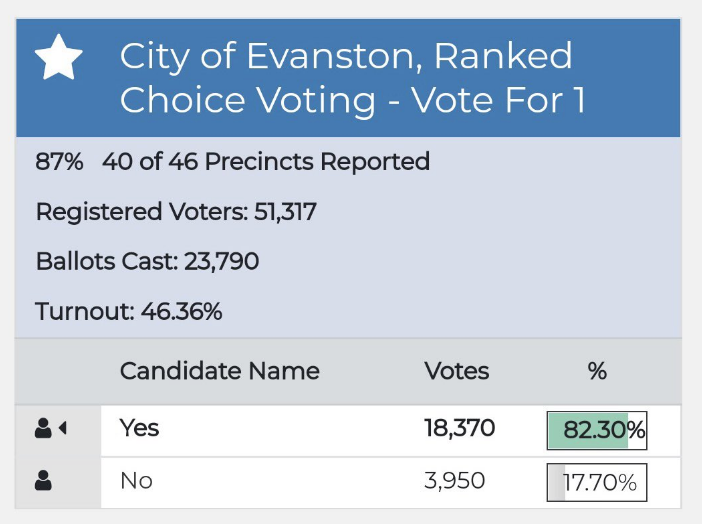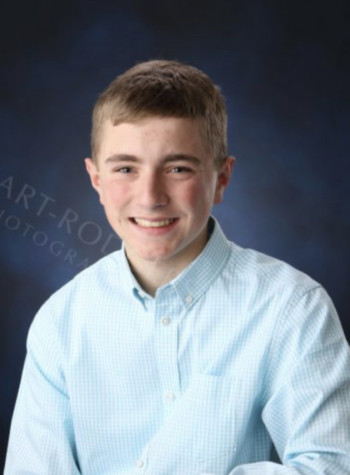Evanston makes support of ranked-choice voting ‘unequivocally clear’ in midterm elections
December 2, 2022
The highly anticipated 2022 midterms elections proved as consequential. Unexpectedly, Democrats defied the GOP’s anticipated “red wave” pulling out mere senate wins in swing states such as Pennsylvania and Arizona, clenching Senate control with a Nevada win while also winning key gubernatorial races in Michigan and Arizona. On the opposing side, Republicans pulled out a big win taking control of the House, although losing previously held gubernatorial seats like Maryland and Arizona, which could prove costly for the GOP’s pro-life movement. In Georgia, a critical Senate battleground state, both incumbent Democratic candidate Raphael Warnock and his Republican challenger, former NFL superstar Hershel Walker failed to obtain 50 percent of the vote, sending the vote to a high-stakes run-off election on Dec. 6.
On a state level in Illinois, little changed with incumbent Democratic governor J.B Pritzker sailing to the victory over Republican hopeful Darren Bailey in addition to incumbent Senator Tammy Duckworth, Comptroller Susanna Mendoza, Attorney General Kwame Raoul and Secretary of State Alexis Giannoulias all easily winning reelection.
Locally, the city of Evanston made history as the first city in the state of Illinois to pass “Ranked Choice Voting” (RCV), a voting method in which voters rank candidates on the ballot in order of their preference. RCV is proposed as a more equitable voting process that is aimed at increasing voter turnout and “fair” elections.
“Evanstonians made it unequivocally clear that they wanted (a) more efficient, more representative democracy; we (have) already seen interest from both residents and government officials in other Illinois cities in adopting Ranked Choice Voting, and we expect a state-level bill to be reintroduced next session. Momentum… with Ranked Choice Voting is growing steadily, and Fair Vote Illinois wants to foster that growth to bring (a) more robust, responsive democracy to all Illinoisians,” said Fair Vote Illinois Board Member Larry Garfield in an emailed statement to the Evanstonian.
Across McCormick Boulevard, the Village of Skokie voted upon and passed three newly proposed ballot initiatives.
The first on the ballot was an ordinance establishing staggered terms for Village Trustees putting village elections on a two-year basis instead of four, placing only half the board up for election at once; ensuring increased opportunities for new candidates to be elected to office.
The second referendum establishes hybrid elections meaning Skokie residents will be represented by two village-wide trustees and four district trustees as opposed to the current 6 village-wide trustees. This is in effort to provide equal representation to the historically underrepresented western and southern ends of Skokie. The new system is similar to the Evanston Ward System where specific wards elect their representatives.
The third and final initiative put into place nonpartisan elections meaning candidates’ political party affiliations aren’t listed on the ballot in hopes of making voting equitable for all candidates regardless of political party ties. Also approved on the ballot in Cook County was a referendum allowing a slight property tax hike to provide more funding to the Cook Forest Preserve District.
This election was the first opportunity for many Evanston seniors to take to the polls contributing to a record-breaking teenage voter turnout of nearly 28 percent nationally becoming the second highest turnout this century outside of the 2018 midterms which reached slightly over 30 percent. As expected high youth turnout was critical for the pro-choice movement and adding new abortion protections, especially in states like Kentucky, Vermont and Michigan, which were poised to set full abortion bans in place.
“My [first time voting] was a surprisingly easy experience and everyone [working at the polls] was so helpful and friendly; [they were] excited to find out it was me and my sister’s first time voting,” says senior Aoife Lucas. “It felt nice to know I had a voice and that I could vote for the people I feel could make the changes I want to see.”









